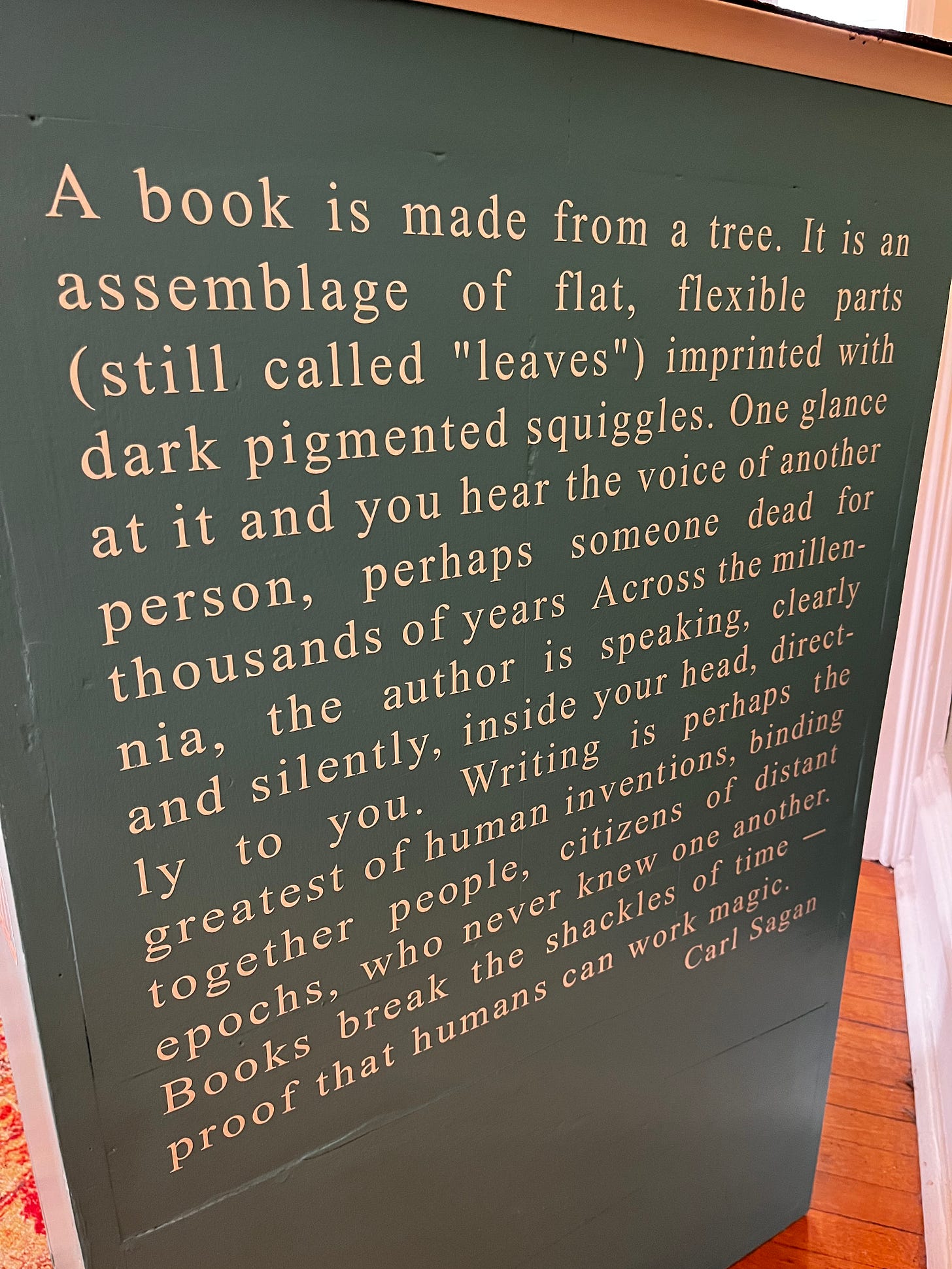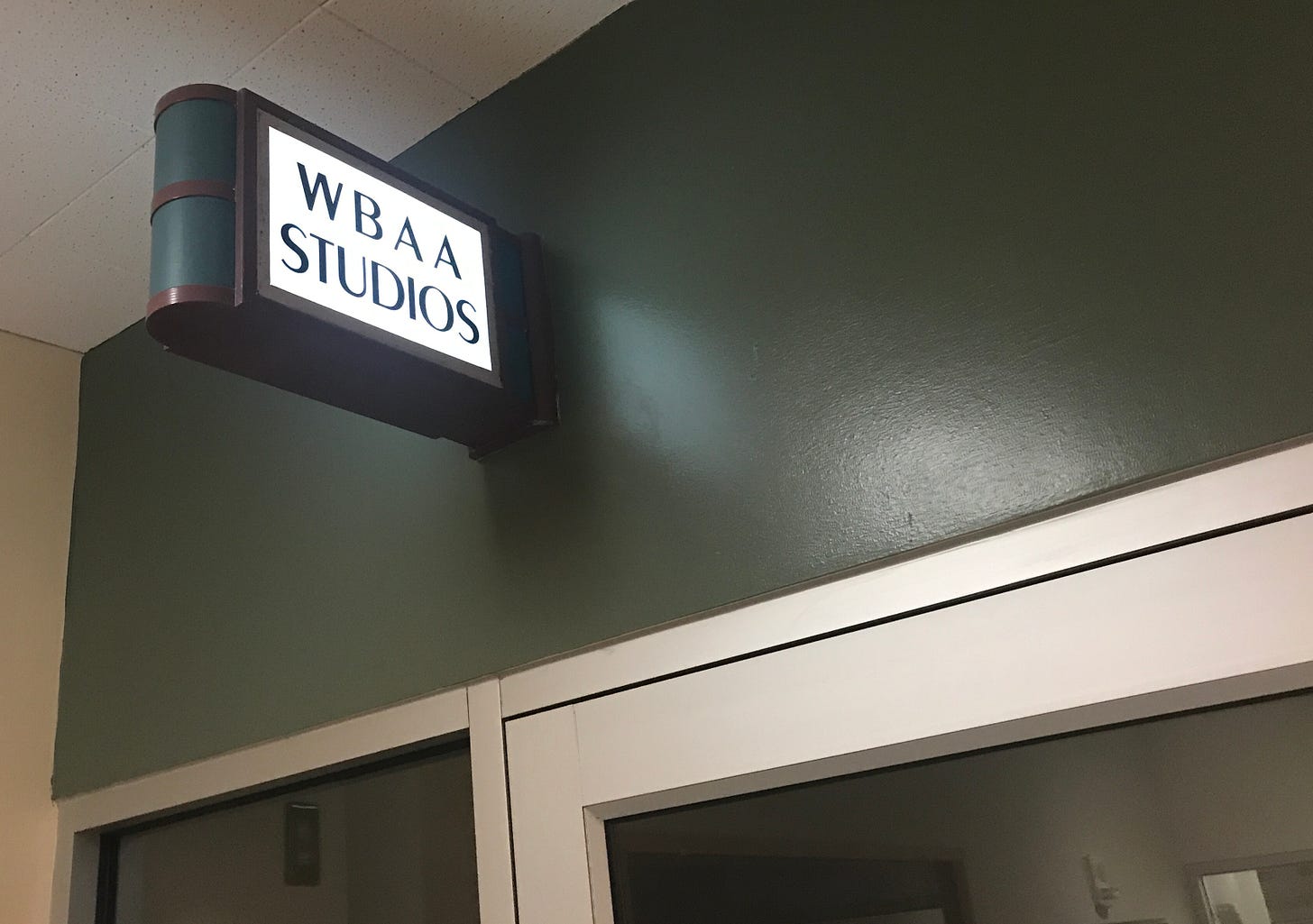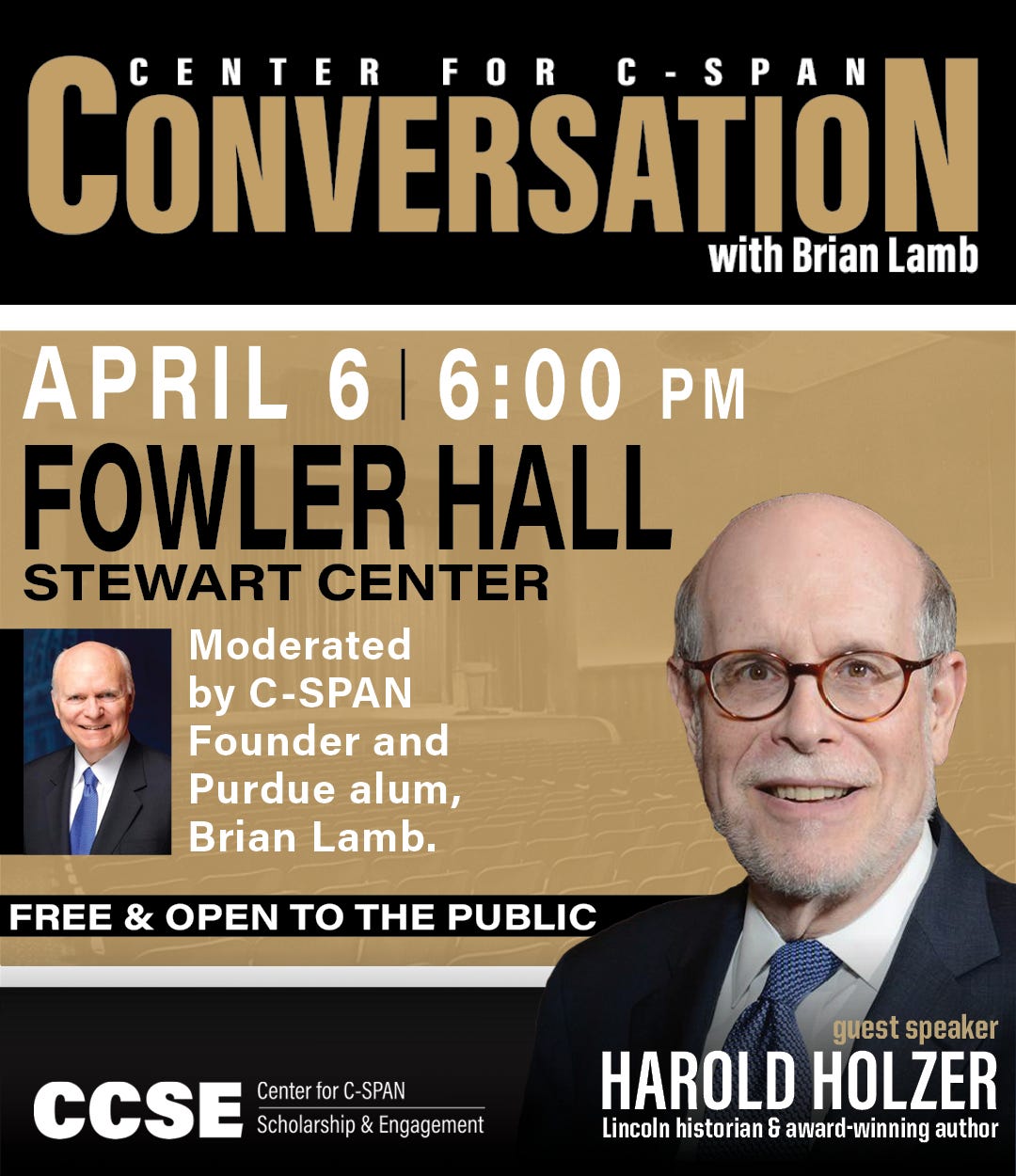Judge denies 4th District challenger an emergency spot on ballot
Judge rules Indiana’s two-primary rule is valid, keeps Charles Bookwalter out of 4th District race. Plus, the return of a Little Free Library on Erie Street. And happy 100th to WBAA
Today’s edition of the Based in Lafayette reporting project is sponsored by the Center for C-SPAN Scholarship & Engagement at Purdue. The Center for C-SPAN Conversation with Brian Lamb will feature a conversation with Howard Holzer, Lincoln historian and author, at 6 p.m. April 6 at Purdue. For more, scroll through today’s edition.
JUDGE WON’T STEP IN ON 4TH DISTRICT CHALLENGE
Any last-second shot to get on Republican primary ballots in Indiana’s 4th District for Charles Bookwalter disappeared Friday.
A Marion County judge ruled that GOP party officials were in bounds when they challenged his candidacy and the Indiana Election Commission was correct by not certifying his name for the May 3 ballot.
In a ruling posted Friday, after arguments March 25, Marion Supreme Court Judge Cynthia Ayers wrote that Bookwalter’s request for an emergency stay came too late. His case was filed March 14, three weeks after an Election Commission decision that kept him from challenging U.S. Rep. Jim Baird. The judge noted that was the same day counties received delivery of printed absentee ballots.
By doing that, Ayers ruled, “Bookwalter effectively acceded to the printing and mailing of ballots without his name included as a candidate.”
Beyond that, Ayers wrote that Bookwalter’s claims that Indiana’s two-primary rule was unconstitutional wasn’t likely to win a legal challenge.
Bookwalter contended that Indiana law made ballot access too steep by requiring that a major party candidate must have voted in the most recent two primaries or get a waiver from the county party chair. He called the rule an effective four-year waiting period for anyone motivated from being non-political to wanting to run for office.
Bookwalter was challenged by a pair of party leaders in the 4th District when the U.S. Army veteran and business owner living in Thorntown said he’d voted in one Republican primary and his home-county party chair declined to vouch for him as a congressional candidate. The Indiana Election Commission, saying Bookwalter’s beef was with lawmakers in the General Assembly, agreed that Bookwalter didn’t meet the threshold of the current law.
Ayers wrote that the “U.S. Supreme Court did not recognize an unfettered right of a person to run for election.” Ayers referenced a 1973 case, Rosario v. Rockefeller, in which the Supreme Court ruled that New York’s closed primary, one that required voters to enroll with the party of their choice at least 30 days ahead of the election, wasn’t unconstitutional. Ayers wrote that the Supreme Court “recognized the legitimate interest in inhibiting ‘party raiding,’ ‘whereby voters in sympathy with one party designate themselves as voters of another party to influence or determine the results of the other party’s primary.”
Bookwalter told the Election Commission during his hearing, and then Ayers in court, that he wasn’t crossing party lines – that there was no question that he was a Republican. His attorney, Trent Trueblood, told the court that he’d voted in one primary, but that he’d also been active in party politics since his days at IU in 2000. In court documents, Bookwalter contended that when he went to Debbie Ottinger, Boone County Republican chair, to get her signature for unchallenged access to the ballot, she encouraged him to run for another office but that she wouldn’t sign for him to run against Baird.
Bookwalter, who remains on the primary ballot in Boone County as a delegate to the Republican state convention, called the law a way to protect incumbents from primary challenges.
Ayers cited a 1989 U.S. Supreme Court ruling, Eu v. San Francisco County Democratic Cent. Comm, that said “partisan political organizations enjoy freedom of association” under the First and 14h amendments. The Supreme Court ruled that “a political party has a right to identify the people who constitute the association … and select a standard bearer who best represents the party’s ideologies and preferences.”
Bookwalter’s case for a stay argued that that state’s two-primary law was vague and gave no consistent guidelines about what party membership actually was.
Ayers said Bookwalter’s argument was unlikely to win a decision “that disallows a party chair’s discretion.”
Ayers wrote: “The challenge issue of ‘vagueness’ raised here is based on the process by which a county chair can certify that an aspirant is a member of a political party. The decision to make that determination is within the import of (Eu v. San Francisco County Democratic Cent. Comm.) and would allow such discretion notwithstanding unspecific criteria.”
Attempts to reach Bookwalter or his attorney were not immediately successful.
The decision firms up the ballot in the 4th District, which includes Tippecanoe County and surrounding counties, along with a large chunk of west-central Indiana. Baird, running for his third term, is uncontested in the GOP primary. He’ll face the winner of a Democratic primary between Roger Day and Howard Pollchik.
Early voting ahead of the May 3 primary begins Tuesday.
FOR MORE: Here’s the full order from Judge Cynthia Ayers in Bookwalter v. Indiana Election Commission.

A LITTLE FREE LIBRARY REBORN, REBUILT ON ERIE STREET
Just a quick story about a Little Free Library …
The recycled medicine cabinet, fitted with shingles and a framed Plexiglas door, made it through four years in the elements at the Erie Street community garden, in Lafayette’s Jefferson Historic Neighborhood.
“It finally had enough,” Gail Thayer-Copeland, co-secretary of the Jefferson Historic Neighborhood association and a keep of the neighborhood’s open-air book exchange, said.
“We had to do something,” Thayer-Copeland said.
Something, in this case, will be dedicated Monday afternoon, with the return of one of the dozens of Little Free Library sites in Greater Lafayette.
As the first version of the library – a place people can take a book or leave a book – began to show wear at the end of 2021, Thayer-Copeland and others in the neighborhood looked for something that might hold up better in the elements. Thayer-Copeland turned to a cedar chest, built in the 1940s, that she’d inherited from her mother. John Copeland, her husband and owner of Fox Valley Karts on the edge of the neighborhood, knew someone in Tennessee who was prepared to deconstruct the chest and use the cedar – wood that’s naturally weather resistant – and rebuild it. Scott Brown, a former neighbor, had blue and gold paint left over from another project. (The colors weren’t intentionally those of the Ukrainian flag, “but that worked out well,” Thayer-Copeland said.) And Thayer-Copeland had Mark VII Graphics, a neighborhood business, do the graphic work, including an extended quote from Carl Sagan about how books are “proof that humans can work magic.”
The new, improved version of the neighborhood’s Little Free Library will reopen at 3:30 p.m. Monday near the corner of Erie and Cincinnati streets, with a ceremony including city officials.
The piece is part of the national nonprofit Little Free Library system – the Erie Street location is charter No. 71537 – that touts more than 125,000 in neighborhoods, parks and other public spaces. Click on the map below to get to a map, including ones scattered across Lafayette and West Lafayette.
The one at the community garden went up to complement the plots open neighborhood residents to tend or pick, as produce is available. Thayer-Copeland said she wasn’t sure how much use it would get, until it wound up emptying in a matter of days early on.
“It’s more than I thought,” Brown said.
Neighbors leave book donations on her North Street porch. She scours for books in Spanish and ones for kids, which go particularly quickly. She keeps a stash of releases in her trunk, so she can replenish the shelves whenever she passes by and see it needs to be done. She puts a sticker in each book telling that it had come from the Jefferson Historic Neighborhood Free Library: “Please keep it or pass it to someone else when you’ve read it.”
“It’s a small thing, and we’re just one,” Thayer-Copeland said. “But I just love to see the neighbors taking to it.”
All the more reason to get box that handle more years at the community garden.
HAPPY 100TH BIRTHDAY, WBAA: The future of WBAA, the AM and FM radio signals based at Purdue, is in transition these days, as the university and the parent company of WFYI in Indianapolis wait for FCC approval of a license transfer. No matter, Monday marks the 100th anniversary of WBAA’s first license, after starting as an academic experiment years earlier in the formative days of radio. For a quick history to mark WBAA’s 100th, here’s a link.
Thanks to the Center for C-SPAN Scholarship & Engagement for sponsoring today’s edition. On Wednesday, April 6, Lafayette native and C-SPAN founder Brian Lamb will host Harold Holzer, author of “The Presidents vs. the Press: The Endless Battle Between the White House and the Media – from Founding Fathers to Fake News.” See more details below.
Have a story idea for upcoming editions? Send them to me: davebangert1@gmail.com. For news during the day, follow on Twitter: @davebangert.









Happy birthday, WBAA! I'm sorry we couldn't keep you local, and much more sorry that Purdue's administration doesn't value you you enough.
I don’t know if the law to have voted in 2 previous primaries is unconstitutional or not (a judge said it was, so I would stick with that) but he is right. It does put a waiting period on people that moved to the state.
We have open primaries and many time people vote in the primary that has a person that specific want to vote for.
There should be a different way to determine a persons party rather then previous primary votes.